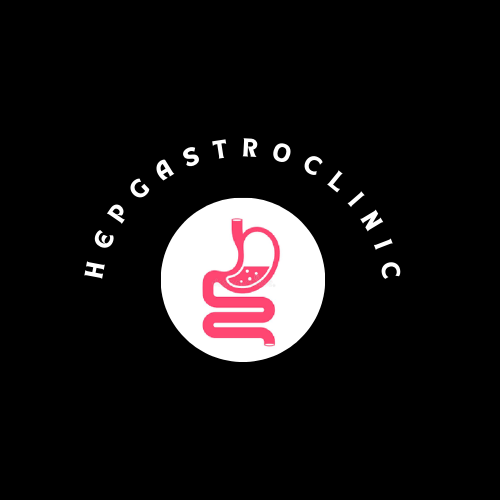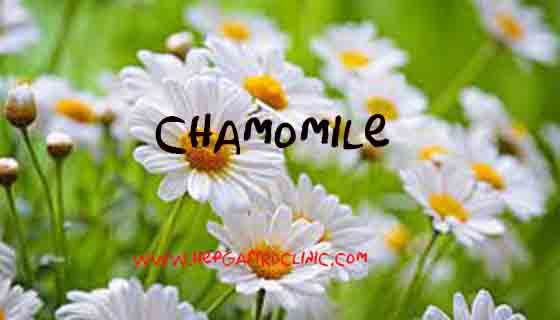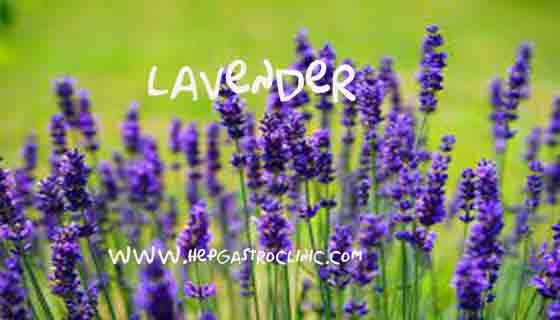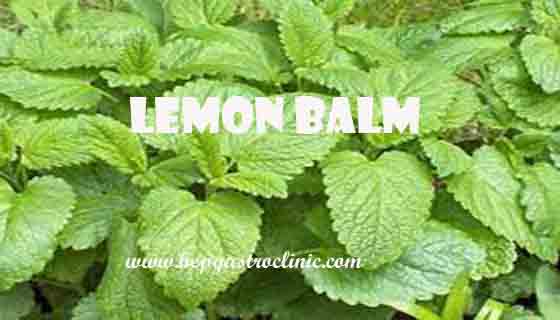Top 10 natural sleep aid supplements in 2022
Sleep is a vital function that helps the body to
recover and regenerate. Getting a good night's sleep is essential for overall
health and well-being and can help improve productivity, cognitive function,
and mood. Unfortunately, many people suffer from poor sleep or insomnia, which
can have a negative impact on their health and well-being. There are many ways
to improve sleep, including changes to diet, exercise, and bedtime routines.
One popular
method for improving sleep is the use of natural sleep aids. Natural sleep aid
is a supplement or herbal remedy that helps to promote relaxation and peaceful
sleep. There are many different types of natural sleep aids available, and each
has its own unique properties.
In this
article, we will discuss the best natural sleep aids available in 2022. We will
look at the benefits and drawbacks of each type of sleep aid and provide advice
on how to choose the best supplement for you.
What Is a Natural Sleep Aid?
Natural Sleep Aids are products that could
potentially treat mild to moderate insomnia and some sleep issues. Separate
brain functions are involved in the maintenance of natural sleep. It includes
natural hormones like melatonin or some plants.
Natural sleep aids are simpler and less harmful than prescription sleeping pills. The side effects and risks of natural sleep aids are also better than prescription sleep aids such as those containing barbiturates.
Are Sleep Aids Safe?
Any medication, including natural sleep aids, can have
unanticipated side effects and risks. Because supplement regulation isn't
nearly as strict as pharmaceutical regulation, the products you buy may contain
varying amounts of active ingredients in each batch. If you're going to try a
supplement, go with a major supplement manufacturer to increase the chances of
better quality control.
Remember to consult your doctor before taking any supplement, especially if you have a preexisting medical condition or are taking prescription medications.
Top 10 natural sleep aid supplements:
Melatonin
Melatonin is a
hormone produced in the pineal gland. It regulates our sleep/wake cycles.
Why Is Melatonin So Effective?
Melatonin has been used as a treatment for insomnia
since the 1950s. In fact, it was first discovered in 1958 when scientists were
looking for a substance that would help regulate the body’s sleep/wake cycle.
They found that melatonin did just that, and it became one of the first “sleep
aids” available.
How Does Melatonin Work?
Melatonin is produced naturally by our bodies at night, and it helps us fall asleep. It also helps keep us awake during the day, helping us stay alert and focused. This hormone is released throughout the body, but it’s especially concentrated in the pineal gland, located near the brain stem.
Benefits of Melatonin.
Melatonin for insomnia
Melatonin has been one of the oldest known
hormonal treatments for insomnia. It has been studied and utilized throughout
history for its health benefits, and studies and research continue this
hormone.
Sleep and mental health are inextricably
linked. A person will cycle through over four stages of sleep every 90 minutes
or so. During the first phase of sleep, the body temperature drops, and the
heart slows down. In the fourth phase, the body is grinding through
physiological changes and prepares to face the day.
Disruptions to this specific transition
between stages of sleep can ultimately have a negative impact on your brain. If
you're losing sleep due to stress, your emotional regulation may not function
properly. Additionally, your cognitive function may be impaired, and your life
is at risk.
Melatonin for anxiety
Now that we know about the evidence of a link
between melatonin and mental health, let's look at it.
Most of the research on melatonin has been
done on humans who had undergone surgery. Surgery is often a stressful
procedure, and doctors occasionally prescribe pills and other medications to
help their patients cope with such stress. However recent research suggests
that melatonin also has benefits, regardless of the presence of anxiety.
A 2015 meta-analysis on the use of natural
melatonin for anxiety found that melatonin use before surgeries was effective
in reducing anxiety when compared to placebo. Confirming these results, other
studies found that melatonin was as effective as anti-anxiety medication drugs
and was always better than just taking no pills.
Side Effects of Melatonin
Melatonin is safe when taken at recommended doses.
However, some people do experience side effects such as drowsiness, headache,
nausea, and dizziness. If these symptoms occur, stop taking melatonin and
consult with your doctor.
Dosage Recommendations
There are different recommendations for how much
melatonin to take each night. Most experts recommend between 0.5 mg and 3 mg
per dose. You should start by trying one dose and then gradually increasing the
dosage until you find what works best for you.
Is there any interaction between contraceptive pills and melatonin?
Birth control pills (contraceptive drugs) interact
with melatonin, so use them with caution. Birth control pills appear to increase
the amount of melatonin produced by the body. Melatonin may have greater
effects and side effects when combined with birth control pills.
Chamomile.
5-hydroxytryptophan (5-HTP)
5-HTP is a natural chemical produced by amino acids
found in our bodies that aids in the production of serotonin. When taken as a
supplement in doses ranging from 200 to 400 milligrams, it may increase
serotonin and melatonin production, which are beneficial for a variety of
conditions, including sleep difficulties.
Lavender
Many people use lavender as a natural remedy for its
calming properties. It is frequently used in aromatherapy and tea blends.
Researchers discovered lavender aromatherapy to be a "safe, accessible,
and effective intervention for self-reported sleep issues" in a study on
the inhalation of lavender essential oil.
Valerian root
Valerian root is a popular herbal supplement for sleep
and relaxation that is commonly consumed as a tea or supplement. According to
the Sleep Foundation, herbs have been shown to safely improve relaxation and
sleep, but they should be used with caution and should not be used long-term or
in conjunction with other sleep aids, sedatives, or anti-anxiety medications.
The sedative nature of valerian root can help with sleep issues, but it can
cause drowsiness the next day.
Magnesium
If you've heard of magnesium, it's probably because of
its beneficial effects on muscle relaxation, making it an excellent
post-workout supplement. However, this property makes it an excellent
supplement for promoting sleep.
Magnesium is a mineral that occurs naturally in the
body and is found in bones, soft tissue, and blood. It may have a positive
effect on sleep due to its ability to relax our body and reduce stress.
Magnesium can be found in a variety of foods, including whole grains and dark,
leafy vegetables.
On a chemical level, magnesium promotes sleep by
activating the parasympathetic nervous system, which oversees inducing calm and
relaxation.
Montmorency cherry
Melatonin is a popular natural sleep aid, but there is
one drawback to synthetic melatonin supplements: high-dose melatonin
supplements have been linked to excessive daytime sleepiness, which you should
avoid when using natural sleep aids.
But there is natural melatonin derived from
Montmorency tart cherry that can help.
Tart cherry juice can boost melatonin levels and make
tryptophan, a sleep-promoting amino acid, more available; it improves sleep
quality and duration in healthy adults.
Several studies have found that it improves sleep
quality and makes it easier to fall asleep, and it may also help treat
insomnia.
Lemon Balm
Lemon balm, a member of the mint family, has been used
since the Middle Ages to treat anxiety, improve mood, and induce sleep. Though
sleep medicine has advanced significantly since the days of knights and feudal
overlords, the herb remains a popular calming agent, most found in teas and
lotions.
A recent study found Lemon Balm to be effective at
reducing anxiety and restlessness.
Kava Kava
Kava Kava is a Pacific Island crop that has
long been regarded as an effective natural sleep aid. Although nearly stable
for centuries among native Polynesians, the tropical plant has only recently
begun being explored as an herbal medicine elsewhere. Nonetheless, the plant
has been popular among Native Hawaiians and some Micronesians for more than a
thousand years D.H.
Research is limited, but it appears that the
plant's root contains sedative properties that could be useful for stress
management, anxiety reduction, and sleep. But the herb is not expected to play
an important part in future herbal medicine because of the costs involved with
its production.
People often take kava kava typically in pill
form, which can be taken during the day or at night.
Passionflower
This genus
includes several species native to the Americas that have been used for
centuries to treat a variety of health ailments, including boil infections, ear
infections, and stress-related fatigue. Passionflower extract is a common
remedy for anxiety and insomnia in more modern times.
5 Ways to Get More Sleep Tonight
- Maintain a routine.
A regular sleep schedule is beneficial to the human
body. Commit to going to bed at (or close to) the same time every night and
waking up at (or close to) the same time every morning, even on weekends.
- Avoid stimulants for at least six hours before going to bed.
Skip the afternoon or evening coffee, as well as any
other caffeinated beverages you consume later in the day. Also, keep in mind
that some nutritional supplements and foods, such as chocolate, can be
stimulating. Certain prescriptions, such as blood pressure medications, also
act as stimulants. Consult your doctor about taking those prescriptions earlier
in the day.
-Reduce your evening light exposure
Turn off all screens at least an hour before bedtime
(or two hours for patients who are sensitive to sleep problems).
Light suppresses melatonin production, and blue light
emitted by your phone screen and other devices suppress melatonin production
even more. So, yes, turn down the lights. If you can't get away from your screens,
consider investing in blue light-blocking glasses, which have been shown to
improve melatonin secretion and sleep.
- Don't eat or drink anything close to bedtime.
You're
less likely to sleep well if your body is actively trying to digest a large meal
as you lie down. Some people get reflux if they eat too close to bedtime, which
naturally keeps them awake. Meanwhile, drinking less reduces the likelihood of
waking up in the middle of the night to use the restroom.
- Stimulus control therapy
It is unquestionably the best, and it works even
better than prescription medication. First, you commit to a regular sleep and
wake schedule, as well as creating a sleep-friendly bedroom environment—cool,
dark, and quiet. From now on, only use your bed for sleeping (and perhaps sex).
If you are awake for more than 10 minutes at any point in your bed, get up and
leave the room. When you're tired again, go back to bed. Get up at the same
time every day, no matter how much or how little sleep you've gotten, and don't
nap during the day. You'll gradually train your body to associate your bed with
sleep so that if you don't sleep, you'll feel groggy.
Summary
A good night’s rest is essential for a healthy
lifestyle. However, getting enough sleep isn’t easy. Many people struggle to
fall asleep at night because they’re too busy thinking about work, family, or
other things. There are a lot of sleep aid supplements that may help.








